Ranking the Super Bowl Champions: 44-21
Since the first Super Bowl was held in January 1967, 44 teams have hoisted the Vince Lombardi Championship Trophy. But which of these championship teams was really the greatest of the greats?
Was it one of the teams coached by Lombardi himself, or was it the only team to finish a season undefeated? Was it a one-year wonder like the 1985 Bears or perhaps a team coached by one of the coaching legends in Walsh, Landry, Gibbs or Noll.
Trying to cut through the numbers and years to identify the best Super Bowl Champions of all-time is a lot like trying to rank Five Star restaurants or elite sports cars. Each one has its own merits and greatness that ultimately led to its ability to claim a championship.
Only twice in 44 years has a Super Bowl Champion lost as many as six games during a season and 28 champions lost three or fewer games on their way to winning a title.
But when you get past the win-loss records and start to analyze the entire picture, a clearer view of which teams were indeed a notch above starts to emerge.
In trying to identify the best of the best, I looked at five factors and ranked each champion in all five categories.
In addition to overall winning percentage, I also ranked teams based on the average margin in their losses and then separately the average margin in their victories. This helped paint a picture of whether teams were competitive in the games they did lose and then also illustrated if they were dominating in their victories. The best of the best were competitive in every game and dominant against their weaker opposition.
However, given that the caliber of each schedule was not the same and some teams may have played a more challenging schedule and didn’t have as many dominant victories, I also ranked teams based on the winning percentage of their regular season opponents and also by the number of teams they defeated during the season that had a winning record.
The championship team with the best ranking in each category received 44 points, down to one point for the team with the lowest score in each category. The points were then added up to determine the overall rankings.
The result is a ranking of the Super Bowl championship teams that doesn’t just give the nod of greatness to the teams with the best records. Instead, the full body of their championship season is analyzed and considered.
Because winning percentage was only one of multiple factors, the teams ranked as the best didn’t necessarily have the best record. Some of the teams often named as being among the best of all-time when simply looking at overall record fell to the middle of the pack when other factors are considered.
The goal of these rankings is to paint the full picture of which team played at the highest level against the toughest competition throughout a season in which they finished as the Super Bowl Champion.
So, here is my attempt at ranking the 44 Super Bowl Champions from “worst” to “best” based not on personal assessment, but instead on overall success during their championship season according to the five factors outlined above. Remember that even the worst team on this list was the best team in football during their championship season, so just to be on this list is special.
In this first installment are numbers 44-21:
44. 1970 Baltimore Colts – Record: 14-2-1 (28 points); Average loss: 18.5 points (2 points); Average win: 11.0 points (7 points); Opponent winning percentage: .370 (3 points); Wins over +.500 teams: 1 (3 Points); Total Points: 43
Just two years after suffering one of the most surprising losses in Super Bowl history, the Baltimore Colts returned to the big stage against the Dallas Cowboys. In one of the most error prone games in Super Bowl history, the Colts managed to win 16-13 on a last second field goal. The Colts went 11-2-1 during the regular season, but had only one victory over a winning team. They didn’t look like a championship contender early in the season when they lost 44-24 to the defending champion Kansas City Chiefs in the second game of the year, but they suffered only one additional loss and a tie on their way to the AFC title.
43. 2001 New England Patriots – Record: 14-5 (4 points); Average loss by 10.2 points (12 points); Average win by 11.6 points (10 points); Opponent winning percentage: .449 (12 points); Wins over +.500 teams: 2 (8 points); Total Points:46
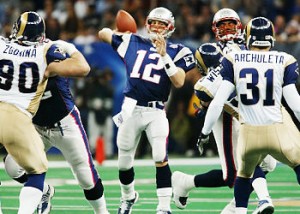
The New England Patriots were huge underdogs when they defeated the St. Louis Rams in Super Bowl XXXVI.
The first of three Super Bowl champion teams for the Patriots in a four year stretch, the 2001 Patriots were a huge surprise team as they lost their first two games and their long-time starting quarterback in veteran Drew Bledsoe. However, unheralded second year pro Tom Brady proved to be up to the task and the Patriots went 11-3 the rest of the season, including winning their final six regular season games. They then registered one of the biggest upsets in Super Bowl history as they shut down the high powered St. Louis Rams offense. This Patriots team wasn’t one of the all-time best squads, but they set the stage for future greatness.
42. 2007 New York Giants – Record: 14-6 (3 points); Average loss by 13.8 points (8 points); Average win by 8.8 points (1 point); Opponent winning percentage: .516. (41 points); Wins over +.500 teams: 1 (5 points); Total Points: 58
It is probably of little surprise that the 2007 New York Giants are ranked near the bottom of this list considering that they matched the record for most regular season losses by a Super Bowl Champion. However, they join the 1969 Jets and 2001 Patriots as having registered one of the biggest upsets in Super Bowl history. The Giants were outscored 80-48 in their opening two games, but recovered to win six straight games and eventually reach the playoffs as a wild card. They then won three games on the road before shocking the undefeated New England Patriots 17-14 in the Super Bowl. The Giants had the smallest victory margin of any team on the list, but are one of only eight Super Bowl champions whose opponents had an overall winning record.
41. 1987 Washington Redskins – Record: 14-4 (7 points); Average loss by 2.8 points (40 points); Average win by 10.6 points (6 points); Opponent winning percentage: .426 (6 points); Wins over +.500 teams: 1 (4 points); Total Points: 63
The 1987 Washington Redskins were the second Super Bowl championship team for Joe Gibbs and the Washington Redskins, but they were the second of Gibbs’ championship teams to win their title during a strike shortened season. The Redskins managed only one victory during the regular season against a team with a winning record and that was an overtime win against the Minnesota Vikings in the regular season finale. Their four regular season losses were by a total of 11 points. After being led during the regular season by quarterback Jay Schroeder, in the playoffs Gibbs replaced Schroeder with Doug Williams, who was 0-2 as a starter during the season, but led the Skins to the victory over Minnesota in relief of Schroeder. Williams and the Skins had their best game of the season in Super Bowl XXII when the Redskins erupted for 35 second quarter points and Williams earned MVP honors after passing for 340 yards and four touchdowns.
40. 1974 Pittsburgh Steelers – Record: 13-3-1 (14 points); Average loss by 9.0 points (19 points); Average win by 14.0 points (20 points); Opponent winning percentage: .431 (10 points); Wins over +.500 teams (2 points); Total Points: 65
The 1974 Pittsburgh Steelers were the first Super Bowl Champion to not defeat a team with a winning record during the regular season. Pittsburgh played only two games against teams that finished with winning records and had a loss against Oakland and a tie with Denver. However, in the playoffs they avenged their loss to Oakland on their way to reaching the Super Bowl for the first time. Facing a Minnesota squad that was making their third Super Bowl appearance, many expected the inexperienced Steelers to struggle. However, led by a dominant defense and great rushing performance by Franco Harris, the Steelers defeated the Vikings 16-6. Interestingly, while Terry Bradshaw eventually became a Hall of Famer, in 1974 many questioned whether he was the right man to lead the Steelers. Joe Gilliam started six games for Pittsburgh and it was as much his off-the-field problems as Bradshaw’s ability that eventually led to Bradshaw taking over.
39. 1981 San Francisco 49ers – Record: 16-3 (24 points); Average loss by 9.0 points (17 points); Average win by 9.6 points (4 points); Opponent winning percentage: .457 (15 points); Wins over +.500 teams: 3 (15 points); Total Points: 75
Much like the 1974 Steelers and 2001 Patriots, the 1981 San Francisco 49ers were the first and arguably weakest of four championship teams of the 49ers in the 1980s. Their average victory of 9.6 points was the fourth lowest among Super Bowl champions. The 49ers lost two of their first three games, but their only loss the remainder of the year was by three points to the Cleveland Browns. Their signature win was a surprising 45-14 shellacking of the Cowboys in week six. When the two teams met again in the NFC Championship Game, the contest was much closer, but San Francisco prevailed on the famous pass from Joe Montana to Dwight Clark. Montana was named the MVP as the 49ers completed their improbable season with a 26-21 win over the Cincinnati Bengals.
38. 1980 Oakland Raiders – Record: 15-5 (6 points); Average loss by 9.2 points (16 points); Average win by 10.0 points (5 points); Opponent winning percentage: .508 (39 points); Wins over +.500 teams: 2 (10 points); Total Points: 76
The 1980 season didn’t look promising for the Oakland Raiders when they lost three of their first five games and to make matters worse lost their quarterback when Dan Pastorini suffered a broken leg in the fifth game of the season. The team turned to former Heisman Trophy winner Jim Plunkett, who was seemingly washed up following a failed attempt to turn around the 49ers. However, Plunkett and the Oakland offense clicked and the team dropped just two games the remainder of the season. In the playoffs they won at Cleveland and at San Diego to reach the Super Bowl. The Raiders completed their surprising season with a 27-10 win over the Philadelphia Eagles.
37. 1992 Dallas Cowboys – Record: 16-3 (23 points); Average loss by 10.3 points (11 points); Average win by 16.6 points (31 points); Opponent winning percentage: .426 (8 points); Wins over +.500 teams: 3 (12 points); Total Points: 85
The first of the three Super Bowl winnings teams for Dallas during a four year span, the 1992 Cowboys were a young team with great depth and athleticism. With a 13-3 record during the regular season, this Dallas team actually had a better record than the Dallas teams to follow, but they also played a much weaker schedule as their opponents had just a .426 winning percentage. They won only three games during the regular season against teams with winning records. However, in the playoffs they displayed their ability by out-scoring their opponents 116 to 46. They defeated the Buffalo Bills 52-17 to claim the Super Bowl title.
36. 1968 New York Jets – Record: 13-3 (18 points); Average loss by 7.0 points (30 points); Average win by 13.0 points (13 points); Opponent winning percentage: .439 (11 points); Wins over +.500 teams: 3 (13 points); Total Points: 85
The 1968 New York Jets pulled off the first, and arguably the most important, upset in Super Bowl history. Carrying the banner for the AFL, the Jets methodically neutralized a Baltimore Colts squad that many expected to dominate the AFL’s top team. However, the Jets were themselves a very good team that combined an explosive offense with a solid defense. Joe Namath received all the attention, but the Jets were a quality defensive team that ranked fourth in the AFL in points allowed and first in yards allowed.
35. 2000 Baltimore Ravens – Record: 16-4 (15 points); Average loss by 7.8 points (25 points); Average win by 16.9 points (32 points); Opponent winning percentage: .426 (7 points); Win over +.500 teams: 3 (11 points); Total Points: 90
The 2000 Baltimore Ravens may have possessed the finest defense in NFL history. After surrendering 36 points to Jacksonville in a 39-36 win during the second week of the season, the Ravens allowed more than 14 points in a game only twice the remainder of the year and for the season held nine opponents below 10 points, including four shutouts. Overall, they allowed only 165 points in 16 games. However, they often needed such a defensive performance to win as the offense was inconsistent. They scored under 10 points in four games during the season and ranked 14th in the league in scoring. The reason this team doesn’t rank higher among the all-time Super Bowl champions is that they played a generally weak schedule. Their opponent winning percentage is the seventh worst among Super Bowl champions and they defeated only three teams with winning records during the regular season.
34. 1976 Oakland Raiders – Record: 16-1 (41 points); Average loss by 31 points (1 point); Average win by 11.4 points (8 points); Opponent winning percentage: .469 (20 points); Wins over +.500 teams: 4 (23 points); Total Points: 93
The fact that the 1976 Oakland Raiders rank in the bottom third of this ranking illustrates how when looking at overall greatness among championship teams, having a great record isn’t enough. The Raiders lost only once in 1976, but that loss was an embarrassing 48-17 setback against the New England Patriots in the fourth week of the season. Though they played a relatively week schedule with opponents that had a .469 winning percentage, the Raiders out-scored their opponents by only 11.4 points per game, which ranked 37th among the Super Bowl championship teams. After having lost in three straight AFC Championship Games, the 1976 Raiders finally broke through, though critics will site that the Pittsburgh team they defeated in the AFC title game was playing without their two 1,000-yard running backs and with a Terry Bradshaw who was hampered by injuries throughout the season. In the Super Bowl, they dominated the Minnesota Vikings 32-14 to give head coach John Madden his only title.
33. 1982 Washington Redskins – Record: 12-1 (40 points); Average loss by 14.0 points (6 points); Average win by 11.6 points (11 points); Opponent winning percentage: .481 (25 points); Wins over +.500 teams: 3 (17 points); Total Points: 99
The 1982 Washington Redskins are the second straight one-loss team to appear in the rankings. However, because of the player’s strike during the season, Washington played only nine regular season games and 13 overall. The Redskins were solid during the regular season, but dominant during the playoffs. For their four playoff games the Redskins jumped on the back of the Diesel and let running back John Riggins haul them to the finish line. After gaining 553 yards in eight regular season contests, Riggins rushed for 610 yards in four playoff games. He gained 166 yards, including a back-breaking 43-yard touchdown run on a fourth a one, to lift the Redskins to a 27-17 victory over the Dolphins in Super Bowl XVII.
32. 1999 St. Louis Rams – Record: 16-3 (21 points); Average loss by 4.7 points (35 points); Average win by 20.1 points (43 points); Opponent winning percentage: .363 (1 point); Wins over +.500 teams: 0 (1 point); Total Points: 101
When looking only at record, average margin of defeat and average margin of victory, the 1999 St. Louis Rams look like one of the best teams of all-time. Their average victory margin of 20.1 points was the second best of all championship teams and their average loss of 4.7 points ranks 10th. However, it is when you analyze their competition that their warts start to show. The Rams join the 1974 Steelers as the only Super Bowl champions not to defeat a team with a winning record during the regular season. The .363 winning percentage of their opponents is the lowest among all Super Bowl champions. Though you certainly don’t want to take anything away from the high-flying Rams team that averaged 33 points per game, the caliber of opponent certainly helped them rise from 4-12 in 1998 to 13-3 and a Super Bowl title the following year.
31. 1971 Dallas Cowboys – Record: 14-3 (19 points); Average loss by 6.0 points (33 points); Average win by 18.5 points (39 points); Opponent winning percentage: .416 (4 points); Wins over +.500 teams: 2 (7 points); Total Points: 102
The 1971 Dallas Cowboys are another team whose ranking is adversely affected by the fact that they played a relatively weak schedule. Dallas did not face a team that posted more than 9 wins (out of a 14 game schedule) during the regular season. However, they were dominant against their opponents with an average victory margin of 18.5 points. After reaching the Super Bowl the previous season, Dallas limped to a 4-3 start before Tom Landry permanently inserted Roger Staubach in the starting lineup. Dallas out-scored their opponents 202-77 while winning their final seven regular season games. They then out-scored their opponents 58-18 in three playoff games to claim their first Super Bowl title. The three points they allowed the Miami Dolphins in Super Bowl VI remains the fewest points ever allowed in a Super Bowl.
30. 2006 Indianapolis Colts – Record: 16-4 (17 points); Average loss by 10.0 points (13 points); Average win by 9.2 points (2 points); Opponent winning percentage: .516 (42 points); Wins over +.500 teams: 4 (30 points); Total Points: 104
When looking simply at overall record, the 2006 Indianapolis Colts appear to be one of the weaker teams put on the field during their streak of seven straight seasons of 12 or more wins from 2003 through 2009. However, when looking at the competition, the Colts look slightly better. The .516 winning percentage of their regular season opponents is the third best among all Super Bowl champions. The Colts played a lot of close games in 2006 as 11 of their 16 games were decided by seven points or less. They hit stride in the playoffs and reached the Super Bowl with a comeback 38-34 win over the New England Patriots. They then earned a title for head coach Tony Dungy and quarterback Peyton Manning with a 29-17 win over the Chicago Bears.
29. 1997 Denver Broncos – Record: 16-4 (16 points); Average loss by 8.3 points (22 points); Average win by 16.1 points (30 points); Opponent winning percentage: .484 (27 points); Wins over +.500 teams: 2 (9 points); Total Points: 104
A year after being knocked out of the playoffs with an embarrassing loss to the Jacksonville Jaguars, the 1997 Denver Broncos made a surprising playoff run of their own. They demolished the Jaguars in their first playoff game before winning at Kansas City and at Pittsburgh to reach the Super Bowl. Under the guidance of 37-year-old quarterback John Elway, the Broncos gritted their way to the Super Bowl and then surprised many people with a 31-24 win over the defending champion Green Bay Packers. Running back Terrell Davis rushed for 157 yards in the Super Bowl while the defense forced three turnovers.
28. 2005 Pittsburgh Steelers – Record: 15-5 (5 points); Average loss by 7.6 points (27 points); Average win by 14.3 points (21 points); Opponent winning percentage: .492 (31 points); Wins over +.500 teams: 4 (26 points); Total Points: 110
A year after posting a 15-1 record and then losing to New England in the AFC Championship Game, the Pittsburgh Steelers won three straight playoff games on the road to earn a spot in Super Bowl XL. They then completed their improbable playoff run with a 21-10 victory over the Seattle Seahawks. Led by their defense, the Steelers allowed the third fewest points in the league. Offensively, running back Willie Parker led the way with 1,202 yards on the ground. Second year quarterback Ben Roethlisberger was not capable of carrying the offense, but he made the big plays when needed and threw only nine interceptions during the season.
27. 1994 San Francisco 49ers – Record: 16-3 (25 points); Average loss by 15.3 points (4 points); Average win by 19.8 points (42 points); Opponent winning percentage: .465 (18 points); Wins over +.500 teams: 4 (21 points); Total Points:110
When the San Francisco 49ers lost to the Philadelphia Eagles 40-8 in week five of the 1994 season, many thought that the 49ers would again fall short of a title under the guidance of quarterback Steve Young. However, Young and the 49ers used the loss as motivation and won their next 10 games while scoring 30 or more points eight times. Facing the Dallas Cowboys in the NFC Championship Game for the third straight year, the 49ers finally came out on the winning side with a 38-28 victory. Young then threw six touchdown passes in the Super Bowl as the 49ers defeated the San Diego Chargers 49-26.
26. 2003 New England Patriots – Record: 17-2 (36 points); Average loss by 17.0 points (3 points); Average win by 9.4 points (3 points); Opponent winning percentage: .484 (28 points); Wins over +.500 teams: 7 (42 points); Total Points: 112
When the 2003 New England Patriots lost their season opener 31-0 to the Buffalo Bills, most experts were starting to think that their title in 2001 had been a one-time fluke. However, after a 20-17 loss to the Washington Redskins in week four evened their record at 2-2, New England won their final 12 regular season games, including a 31-0 blanking of the Bills in the regular season finale. They then won close games over the Tennessee Titans and Indianapolis Colts to reach the Super Bowl. In Super Bowl XXXVII, Adam Vinatieri kicked the second Super Bowl winning field goal of his career to lift the Patriots to a 32-29 victory. Their average victory margin of 9.4 points was the third lowest among all 44 Super Bowl champions, but the Patriots did tie for the most victories over teams with a winning record.
25. 2008 Pittsburgh Steelers – Record: 15-4 (12 points); Average loss by 9.3 points (15 points); Average win by 12.3 points (12 points); Opponent winning percentage: .525 (43 points); Wins over +.500 teams: 4 (31 points); Total Points: 113 points
Among all 44 Super Bowl champions, only the 1979 Pittsburgh Steelers faced teams with a higher overall winning percentage than the 2008 Steelers. With many of the same players who helped lead the team to the 2005 title, Pittsburgh was again built around their defense as they ranked first in the NFL in points and yards allowed. Following a 24-20 loss to Indianapolis to drop their record to 6-3, the Steelers lost just once more during the regular season. They then defeated San Diego and Baltimore to earn a Super Bowl spot. Facing the underdog Arizona Cardinals, Pittsburgh needed a late touchdown drive to secure a 27-23 victory.
24. 1972 Miami Dolphins – Record: 17-0 (44 points); No losses (44 points); Average win by 13.6 points (18 points); Opponent winning percentage: .367 (2 points); Wins over +.500 teams: 2 (6 points); Total Points: 114
If you are considering only overall records, then it is hard to dispute that the 1972 Miami Dolphins are the greatest of all Super Bowl Champions. After all, they are the only team to post a perfect record in both the regular season and playoffs on their way to hoisting the Lombardi Trophy. However, when you start to dig deeper and look at all the numbers surrounding the team and the caliber of their opponents, then they suddenly fall from the top and are relegated to second level status. Only the 1999 St. Louis Rams were blessed with an easier schedule than the 1972 Dolphins. Only two of their regular season opponents posted records above .500 and both of those squads were 8-6. Yet, the Dolphins won their games by only an average margin of 13.6 points, which ranks 27th among all Super Bowl champions. There is no question that the 1972 Dolphins were a magical team and their perfect season will likely never be duplicated, but to call them one of the greatest of all Super Bowl champions is not necessarily accurate.
23. 2009 New Orleans Saints – Record: 16-3 (23 points); Average loss by 7.7 points (26 points); Average win by 15.0 points (25 points); Opponent winning percentage: .426 (9 points); Wins over +.500 teams: 5 (32 points); Total Points: 115
The 2009 New Orleans Saints raced out to a 13-0 start and seemed destined for their first Super Bowl before the wheels came off a little over the final three weeks as they lost their final three games. However, the high-flying offense that averaged 32 points per game in the regular season returned in the playoffs as the Saints scored 45, 31 and 31 points in their three playoff games. Their defense, which had been big play oriented all season, continued that trend during the playoffs as they made the big plays needed to win games. The Sainted used an interception late in the NFC Championship Game to post an overtime victory. Then in Super Bowl XLIV, a late interception return for a touchdown sealed the first Super Bowl title in Saints history. Quarterback Drew Brees tossed 34 touchdowns with only 11 interceptions on the season to lead New Orleans to the title.
22. 2002 Tampa Bay Buccaneers – Record: 15-4 (8 points); Average loss by 7.3 points (29 points); Average win by 16.0 points (29 points); Opponent winning percentage: .482 (26 points); Wins over +.500 teams: 4 (24 points); Total Points: 116
After years of knocking on the door, it took a change at the top for the Tampa Bay Buccaneers to finally break it open in 2002. Under the leadership of first year head coach Jon Gruden, the Buccaneers posted a 12-4 record while boasting the best defense in the NFL. Veterans like Warren Sapp, John Lynch, Derrick Brooks and Ronde Barber helped the Bucs hold seven opponents to single digits. In the playoffs, the Buccaneers dominated the 49ers 31-6 before going to Philadelphia and defeating the Eagles 27-10. In Super Bowl XXXVII, the Buccaneers ran the Oakland Raiders out of Qualcomm Stadium with a 48-21 victory.
21. 1967 Green Bay Packers – Record: 12-4-1 (4 points); Average loss by 4.0 points (37 points); Average win by 15.3 points (27 points); Opponent winning percentage: .487 (30 points); Wins over +.500 teams (18 points); Total Points: 116
Though no Super Bowl champion has fewer regular season victories than the nine recorded by the 1967 Packers, the record of this team is a bit deceptive. Two of their four losses came to squads that lost only one game in the regular season (both the Colts and Rams finished 11-1-2) and their average loss was by only four points. In the playoffs, Green Bay soundly defeated the Rams 28-7 before surviving against the Cowboys 21-17 in the Ice Bowl. In their final game under the guidance of Vince Lombardi, the Packers dominated the Oakland Raiders 32-14 to claim their third straight championship and second straight Super Bowl title.
Check back later this week for the top 20.
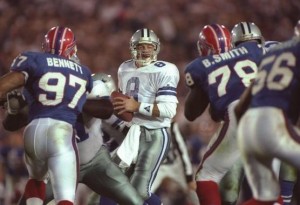
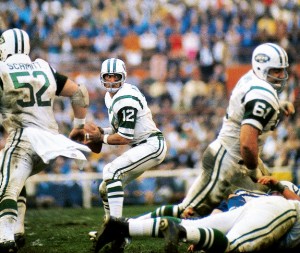
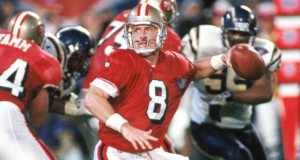
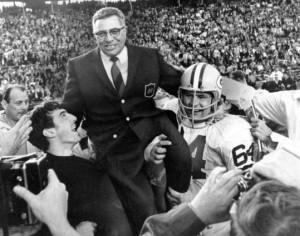
I’m just writing to make you know what a magnificent experience our child experienced reading through your blog. She came to find plenty of issues, most notably what it is like to possess a marvelous coaching spirit to get the mediocre ones very easily know just exactly several tricky subject matter. You really surpassed visitors’ expected results. Thanks for coming up with those essential, dependable, informative and also cool tips about the topic to Tanya.
I loved as much as you’ll obtain performed proper here. The cartoon is tasteful, your authored subject matter stylish. nonetheless, you command get got an impatience over that you want be turning in the following. unwell certainly come further beforehand again as exactly the same just about very frequently inside of case you defend this hike.
I was recommended this blog by my cousin. I am not sure whether tyis post is
written by him as no one else know such detailed about
mmy difficulty. You’re incredible! Thanks!